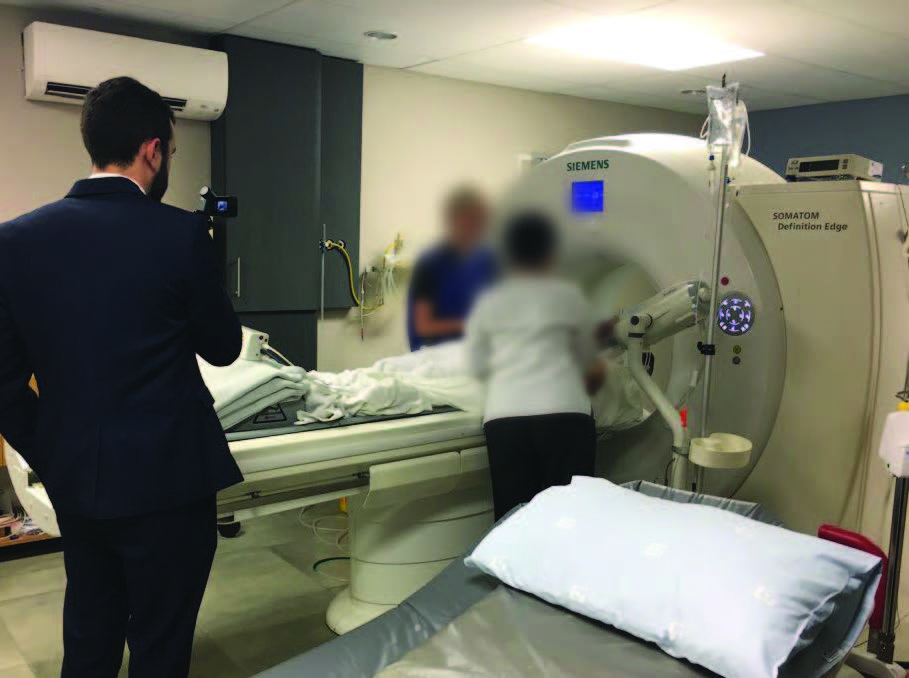Pilots spend hours every year on simulators to make the day to day tasks become automatic and to prepare for those eventualities that you don’t really want to face in the sky for the first time. We all get in airplanes every day because we are comforted by this fact. Should patients not have the same confidence in the abilities of doctors when treating stroke – that they have practiced this over and over until they are perfect.
There is mounting evidence for the value of experiential learning and in particular simulation based training. Tahtali, D. (2016) recently showed that they were able to achieve a mean door-to-treatment time of less than 30 minutes by performing “dummy patient simulations” in their unit.
We saw for ourselves the value of simulation based training in stroke in Dr Mikulik’s simulation centre in Brno Czech Republic so we decided that we needed to develop a way for us to include this into our toolset. We wanted to take simulations to the hospital for stroke teams to do the training in their own environment so we developed a simulation package that included a patient case scenario and two dummy patient simulations that are recorded on GoPro cameras split by a multidisciplinary workshop to study the video and agree on points for improvement. Armed with our new cameras and exited by the possibilities of this type of training we set of to test our new offering in the country that held the roots of the Angels initiative, South Africa.
To be completely honest, going to South Africa we did not really know what to expect. We knew that the average door-to-therapy time in Europe according to the SITS data is around 80 minutes but we had no idea how far South Africa had come. The only reference we had was one simulation that we did in a hospital in Cape Town in November of 2016 with phenomenal results.
The hospital managed to achieve a door-to-therapy time of around 35 minutes in the first run and then managed to half that time after the discussions in the second simulation. This could have been an exception, though. Keep in mind that the Angels Initiative or the MyStroke initiative as it was called there until recently had only been implemented in the country since 2014.
We managed to do simulations in 13 hospitals across the country on one day. As the results started coming in from all the various consultants that were scattered across the country we could not believe what we had discovered. The average of the 13 hospitals for the first simulation was just over 30 minutes and without fail the hospitals managed to reach door-to-therapy times of below 20 minutes in the second simulation. Keep in mind this is a country that had only 4 stroke centres two years ago.
We learned a lot in terms of how to manage these simulations from a technical point of view and if we had any doubts about the practical applicability of these on real life they were removed two days later. One of the hospitals that had a 47 minute personal best before the simulations treated a real stroke patient two days after the simulation in just 31 minutes.
We left South Africa humbled by the experience but motivated to go and tell hospitals in Europe that if a small country with few resources and a bunch of brand new stroke ready hospitals can do it in less than 30 minutes on average, so should every hospital in Europe.


